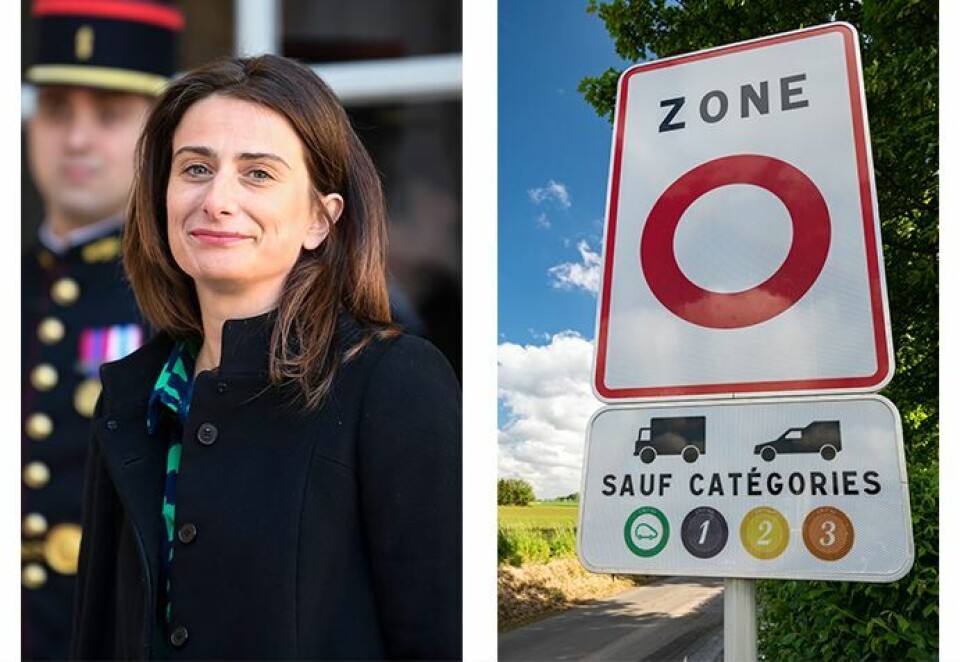-
‘It’s becoming intolerable’: homeowners in France move north to escape the heat
Heatwaves becoming more regular and intense
-
More communes in France distribute Asian hornet traps
Residents are increasingly receiving help, with now the best time to capture the queens
-
Drinking tap water restricted for children in south-west France communes
Haute Garonne prefecture says the measure is precautionary and due to high chlorate levels
Low-emission zones are a bad idea, say French greens
As the French senate launches a survey into the decision to ban older cars from city centres, the green party says it is “the worst possible way” to improve air quality

A public consultation into France’s ‘ZFE’ low emission driving zones has been launched by the Senate.
So far, 11 cities have imposed restrictions on heavy-polluting vehicles, with the zones set to extend to all 43 cities of more than 150,000 residents by 2025.
Read more: Map: See France’s low emission driving zones - and plans for new ones
ZFEs work via fixed pollution ratings shown through Crit’Air stickers which drivers buy.
The Senate survey, available here until May 14, aims to help authorities “better identify difficulties faced by residents and professionals, but also best practices.”
Daytime ban delay
It comes after the Grand Paris metropolitan area announced that its daytime ban of pre-2011 diesel and pre-2006 petrol (Crit’Air 3) vehicles would be delayed until late 2024 or early 2025.
The measure was due to be introduced in July.
Dissent is rising as the ZFEs widen their scope – at least 2,000 motorcyclists recently attended a protest in Rouen against the ZFE there, which will impact them this summer.
The national secretary of the green party Europe Ecologie les Verts (EELV) has also come out against the zones, saying that while the party wants to fight for better air quality, ZFEs “are the worst possible way to do it.”
Marine Tondelier said the decision to have each local authority impose its own ZFEs meant there was “no communication,” leading people with older cars to feel excluded unjustly.
‘Punish the poorest drivers’
“Without social justice, green policies will never work. These ZFEs will just punish the poorest drivers,” she said.
Christine Arrighi, MP for the 9th constituency of Haute-Garonne, which includes parts of Toulouse, said local greens oppose ZFEs as no real alternative to cars has been offered.
“We have been saying for 15 years in Toulouse that public transport has to be improved and nothing has been done – just little projects like the tram from the airport,” she said.
“Where there are cities with reliable, fairly priced public transport, people will use it instead of their cars.”
Ms Arrighi said that if EELV wins power in the local elections in 2026, it will implement public transport measures quickly.
“Contrary to common belief, there are ways of doing so, quickly and relatively cheaply, like President Macron’s idea of RERs [the Paris commuter train service] in every city,” she said.
“That is better than ZFEs which punish people without providing an alternative, but again, President Macron promised €15billion for these but we have not yet seen any of it.”
‘People drive because trains are not reliable’
Ms Tondelier added: “Where I live, you can get to Paris in 90 minutes by car or 30 minutes by train, but people drive because trains are not reliable.
“We need to sort out basics like that before launching into a punishing ZFE scheme which is headed towards yet more protests in the country.”
She believes the CritAir system needs to be scrapped.
“You have the absurd situation where someone with a small, old diesel car which does not use much fuel or pollute that much is in Crit’Air 5 category and thus banned from city centres, while someone who buys a new Porsche sports car with a huge engine and terrible fuel consumption is Crit’Air 1 and can go where they want,” she said.
Another problem with ZFEs is a lack of money given to implement them, adds Ms Tondelier, pointing to the funds needed to buy number plate radars that will be used to enforce the scheme.
Cities that already have ZFEs operating have introduced various exemptions for occasional visits but, she said, the lack of a national policy meant there were big gaps.
“No one in Toulouse, for example, seems to have thought that people from Ariège visit people in hospital in Toulouse.
The exemption days will quickly be used up in such a case.
Related articles
Why you need to remain vigilant about Crit’Air fine texts in France
Car pollution sticker fraud rising in France: avoid getting caught out
Do France’s low-emissions zone rules apply to disabled drivers?
























